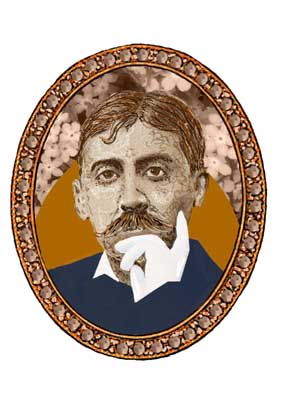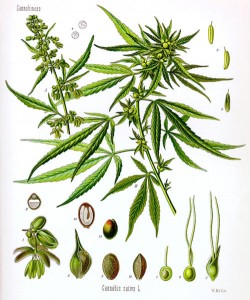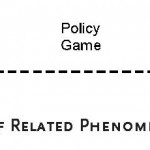De cijfers in De schijn-élite van de valse munters van Martin Bosma
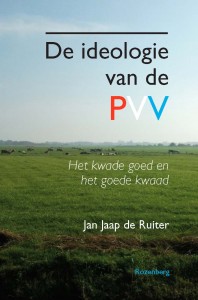 In het najaar van 2010 verscheen het boek De schijn-élite van de valse munters. Drees, extreem rechts, de sixties, nuttige idioten, Groep Wilders en ik van de hand van het Partij voor de Vrijheid (PVV) Kamerlid Martin Bosma. De PVV heeft een stormachtige ontwikkeling doorgemaakt vanaf haar oprichting in 2005 (toen nog als Vereniging Groep Wilders) en bevindt zich op het moment van het verschijnen van mijn boek in de boezem van de macht als gedoogpartner van het VVD-CDA kabinet Rutte, dat in oktober 2010 van start ging. De partij roept een mengelmoes aan reacties op en het is dan ook goed te begrijpen dat alles wat de partij aan uitspraken en teksten afscheidt onder het fileermes wordt gelegd. Maar veel schriftelijks is er niet. Er bestaan teksten van toespraken van Geert Wilders en er is het partijprogramma, maar tot voor kort was er geen samenhangende tekst waarin het gedachtegoed van de PVV gepresenteerd werd. Tot het boek van Martin Bosma verscheen.
In het najaar van 2010 verscheen het boek De schijn-élite van de valse munters. Drees, extreem rechts, de sixties, nuttige idioten, Groep Wilders en ik van de hand van het Partij voor de Vrijheid (PVV) Kamerlid Martin Bosma. De PVV heeft een stormachtige ontwikkeling doorgemaakt vanaf haar oprichting in 2005 (toen nog als Vereniging Groep Wilders) en bevindt zich op het moment van het verschijnen van mijn boek in de boezem van de macht als gedoogpartner van het VVD-CDA kabinet Rutte, dat in oktober 2010 van start ging. De partij roept een mengelmoes aan reacties op en het is dan ook goed te begrijpen dat alles wat de partij aan uitspraken en teksten afscheidt onder het fileermes wordt gelegd. Maar veel schriftelijks is er niet. Er bestaan teksten van toespraken van Geert Wilders en er is het partijprogramma, maar tot voor kort was er geen samenhangende tekst waarin het gedachtegoed van de PVV gepresenteerd werd. Tot het boek van Martin Bosma verscheen.
Martin Bosma zal zich ongetwijfeld niet kunnen vinden in de titel van mijn boek De ideologie van de PVV. Immers, volgens hem zullen ideologieën in de toekomst steeds minder belangrijk worden. Hij baseert zich in deze overweging op de opvatting van de Amerikaanse socioloog Edward Shills bij wie hij in Italië heeft gestudeerd. Hij verwoordt een en ander in zijn boek op bladzijde 132. Tegelijkertijd stelt Bosma in een opmerking die op dezelfde bladzijde tussen haakjes staat dat ‘het verdwijnen van de oude ideologieën de voetnoot kent dat twee nieuwe ideologieën juist belangrijker zullen worden: het multiculturalisme en de islam’. Opmerkelijk aan de tussen-haakjes-opmerking is dat hij onderscheid maakt tussen ‘oude’ en ‘nieuwe’ ideologieën. De oude ideologieën zouden dan, aldus een voorafgaande alinea op wederom dezelfde pagina, het liberalisme en het socialisme zijn. Nu kan ik me wel voorstellen dat je het multiculturalisme als nieuwe ideologie beschouwt, maar de islam, ideologie of niet, is natuurlijk veel ouder dan de ‘oude’ ideologieën liberalisme en socialisme, die pas echt tot wasdom kwamen in de eeuw(en) na de Franse revolutie van 1789. Je kunt je ook afvragen wat een ideologie is. De term is in 1796 gemunt door de Franse filosoof Destutt de Tracy (1754-1836) en had oorspronkelijk de betekenis van ‘de wetenschap die alle andere wetenschappen uitlegt’ (Hawkes, 2003; pp. 59-61).
Verband stadsontwikkeling en vervoer- en verkeerssysteem
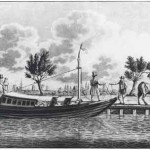 Vervoer- en verkeerssystemen voor de onderlinge verbindingen tussen steden bestaan al heel lang. Deze waren en zijn nodig om staten te kunnen beheren dan wel te beheersen. Een heel oud voorbeeld vormen de heerbanen die dienden om het Romeinse Rijk bijeen te houden. Niet alleen gaat het daarbij om verkeersinfrastructuur zoals wegen en kanalen, maar ook om vervoerdiensten. Hierbij is bijvoorbeeld te denken aan diensten van postkoetsen en trekschuiten. In de negentiende eeuw kwamen daar de spoorwegen bij. Binnen de steden had in het verleden de verkeersinfrastructuur hoofdzakelijk een ontsluitings- en verblijfsfunctie. Opstallen en terreinen moesten voor voetgangers, rijtuigen en karren met goederen bereikbaar zijn, maar er was geen noodzaak binnen de steden lange afstanden snel te kunnen overbruggen. Afgezien van wat (huur)rijtuigen gingen nagenoeg als verplaatsingen van personen te voet.
Vervoer- en verkeerssystemen voor de onderlinge verbindingen tussen steden bestaan al heel lang. Deze waren en zijn nodig om staten te kunnen beheren dan wel te beheersen. Een heel oud voorbeeld vormen de heerbanen die dienden om het Romeinse Rijk bijeen te houden. Niet alleen gaat het daarbij om verkeersinfrastructuur zoals wegen en kanalen, maar ook om vervoerdiensten. Hierbij is bijvoorbeeld te denken aan diensten van postkoetsen en trekschuiten. In de negentiende eeuw kwamen daar de spoorwegen bij. Binnen de steden had in het verleden de verkeersinfrastructuur hoofdzakelijk een ontsluitings- en verblijfsfunctie. Opstallen en terreinen moesten voor voetgangers, rijtuigen en karren met goederen bereikbaar zijn, maar er was geen noodzaak binnen de steden lange afstanden snel te kunnen overbruggen. Afgezien van wat (huur)rijtuigen gingen nagenoeg als verplaatsingen van personen te voet.
Read more
Telkens weer op zoek. In de sporen van de Recherche van Proust
De grote werken uit de Modernistische periode nodigen wellicht des te meer uit tot navolging en imitatie omdat ze zelf vaak variaties zijn op oudere kunstwerken. Ulysses en De dood van Vergilius zijn sprekende voorbeelden die bewijzen dat mimicry en citationisme blijkbaar niet voorbehouden zijn voor een postmoderne aanpak. In deze bijdrage willen we aantonen dat het inhaken op beroemde voorbeelden om deze op eigen wijze te verwerken ook tot een soort ‘vormdwang’ kan leiden (of sterker gezegd – met een lacaniaanse ondertoon – dat deze dwang inherent is aan zo’n onderneming). In ons geval zal het daarbij – in het kader van de voorliggende bundel – vooral gaan om aan te tonen dat kunstwerken die tijdens de laatste decennia als voorbeeld, oriëntatiebron of uitgangspunt Op zoek naar de verloren tijd van Marcel Proust hebben gekozen, als vanzelfsprekend karaktertrekken van het modernisme hebben overgenomen. Uiteraard gaat het hier om complexere processen dan alleen vormdwang, zoals bijvoorbeeld een ‘terugkeer naar het modernisme’ of, genuanceerder, een innige verstrengeling van modernistische en postmoderne componenten.
The Return of the Underground Retail Cannabis Market?
Attitudes of Dutch coffeeshop owners and cannabis users to the proposed ‘cannabis ID’ and the consequences they expect.
ABSTRACT
The sale of cannabis to persons aged 18 or older is permitted in the Netherlands under certain conditions in commercial establishments called coffeeshops. The present Dutch government has proposed that access to coffeeshops be restricted to persons holding a cannabis ID, a mandatory membership card known colloquially as a ‘weed pass’ (wietpas). Recent interviews with 66 Amsterdam coffeeshop owners reveal that they expect mainly detrimental effects from the proposed measure. In particular, they predict customer resistance to compulsory registration, the discriminatory exclusion of tourists and other non-members, and a resurgence of cannabis street dealing. Two surveys of cannabis users (in a local sample of 1214 Amsterdam coffeeshop customers and a nationwide sample of 1049 last-month users) confirmed that many, but not all, users would oppose registration. The majority of respondents intended to look for other suppliers or to grow their own marijuana if the cannabis ID becomes law. Surprisingly, about one in ten said they would stop smoking cannabis.
Read more
ISSA Proceedings 2014 ~ Table Of Contents
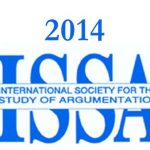 Preface
Preface
Mark Aakhus & Marcin Lewinski – Toward Polylogical Analysis Of Argumentation: Disagreement Space In The Public Controversy About Fracking
Scott Aikin & John Casey – Don’t Feed The Trolls: Straw Men And Iron Men
Derek Allen – The Very Idea Of Ethical Arguments
Rodica Amel – The Synthetic Function Of Doxastic Dialectics
José Ángelgascón – What Could Virtue Contribute To Argumentation?
R. Jarrod Atchison & John Llewellyn – Don’t Drink That Water!: The Role Of Counter-Intuitive Science In Conspiracy Arguments
Sharon Bailin & Mark Battersby – Conductive Argumentation, Degrees Of Confidence, And The Communication Of Uncertainty
Michael J. Baker – The Integration Of Pragma-Dialectics And Collaborative Learning Research: Argumentation Dialogue, Externalisation And Collective Thinking
V. William Balthrop & Carole Blair – Controversy, Racial Equality, And American World War I Cemeteries In Europe
Natalia Barebina – Interpersonal Argumentation Through The Context Of Distributed Cognition: The Case Of Christian Sermon
Michael D. Baumtrog – Delineating The Reasonable And Rational For Humans
Sarah Bigi – Can Argumentation Skills Become A Therapeutic Resource? Results From An Observational Study In Diabetes Care
J. Anthony Blair – What Is Informal Logic?
Marina Bletsas –The Voices Of Justice – Argumentative Polyphony And Strategic Manoeuvring In Judgement Motivations: An Example From The Italian Constitutional Court
Emma Frances Bloomfield & Kari Storla – Evolutionary Arguments In The Birth Control Debate: Casuistic Shifting In Conservative Rhetoric
Dmitri Bokmelder – Cognitive Biases And Logical Fallacies
David Botting – Reasons Why Arguments And Explanations Are Different
Antonio Bova – A Study Of Undergraduate And Graduate Students’ Argumentation In Learning Contexts Of Higher Education
Emanuele Brambilla – On The Benefits Of Applying Argumentation Theory To Research On The Simultaneous Interpretation Of Political Speeches
Ann E. Burnette & Wayne L. Kraemer – Meeting The Demands Of A Changing Electorate: The political Rhetoric Of Julian Castro And Marco Rubio
Begoña Carrascal & Miguel Mori – Justification And Effectiveness: Critical Thinking And Strategic Maneuvering
Annalisa Cattani – A Reason That Desires, A Desires That Reasons Participatory Art And Guerrilla Advertising
Martha S. Cheng – The Sliding Scales Of Repentance: Understanding Variation In Political Apologies For Infidelity
ISSA Proceedings 2014 ~ Preface
The Eighth Conference of the International Society for the Study of Argumentation (ISSA), held in Amsterdam from 1 July to 4 July 2014, drew again more submissions for presentations than any ISSA Conference before. After a strict selection procedure, 320 scholars were invited to present their papers at the Conference. In addition, the Conference attracted some 200 interested colleagues and students who attended the presentations and took part in the discussions.
The 2014 ISSA Conference was, like previous ones, an international meeting place for argumentation scholars from a great variety of academic backgrounds and traditions, representing a wide range of academic disciplines and approaches: (speech) communication, logic (formal and informal), rhetoric (classical and modern), philosophy, linguistics, (critical) discourse analysis, pragmatics, law, political science, psychology, education, religious studies, media studies and artificial intelligence.
During the conference, papers were presented on academic argumentation, analogy argumentation, argument and computation, argument schemes, argumentation and cognition, argumentation and criticism, argumentation and culture, argumentation and epistemology, argumentation and ethics, argumentation and finance, argumentation and media, argumentation and norms, argumentation and probability, argumentation and religion, argumentation and speech acts, argumentation and style, argumentation in the public sphere, argumentation structures, argumentative strategies, critical discourse analysis, critical thinking, debate, definitions, education and learning, empirical research, ethos and pathos, fallacies, historical backgrounds, interpersonal argument, legal argumentation, medical argumentation, multimodal argumentation, narrative argument, political argumentation, political argumentation and national transitions, political discourse, practical argument, the Perelman approach, the Toulmin approach, theoretical issues and visual argumentation. In the opinion of the editors, the Proceedings of the Eighth ISSA Conference reflect the current richness of the discipline.
The Proceedings of the Conference are published on CD ROM by Rozenberg Publishers. For the reader’s convenience, in the Proceedings the papers are arranged in the alphabetical order of the authors’ surnames.
The four ISSA board members, Bart Garssen, David Godden, Gordon Mitchell and Francisca Snoeck Henkemans served as editors of the Proceedings. The editors were helped in their reviewing by members of the Department of Speech Communication of the University of Amsterdam. In addition, we received invaluable assistance in preparing the Proceedings from our research assistant Eugen Popa. We thank him very much for his help in getting the manuscripts ready for publication. Last but not least, we would like to thank our publisher Auke van der Berg for the production of these Proceedings.
For their financial support of the conference, the editors would like to express their gratitude to the Dutch-Belgian Speech Communication Association (VIOT), the City of Amsterdam, Springer Academic Publishers, John Benjamins Publishers, the International Learned Institute for Argumentation Studies (ILIAS), and the Sciential International Centre for Scholarship in Argumentation Theory (Sic Sat).
20 November 2014
Bart Garssen, ILIAS & University of Amsterdam
David Godden, Old Dominion University
Gordon Mitchell, University of Pittsburgh
Francisca Snoeck Henkemans, ILIAS & University of Amsterdam


